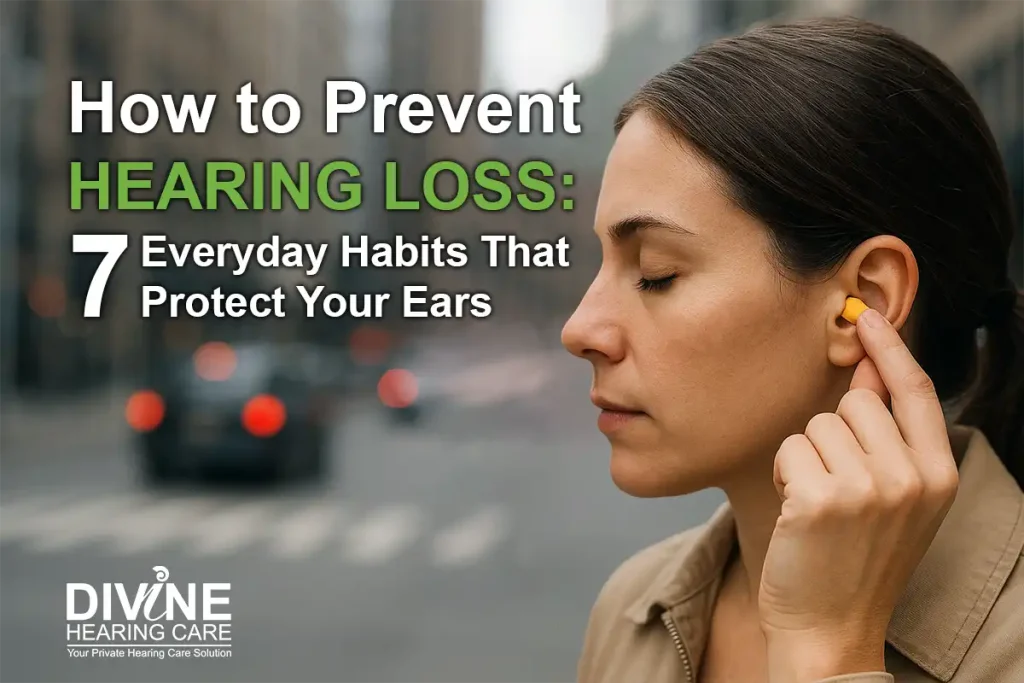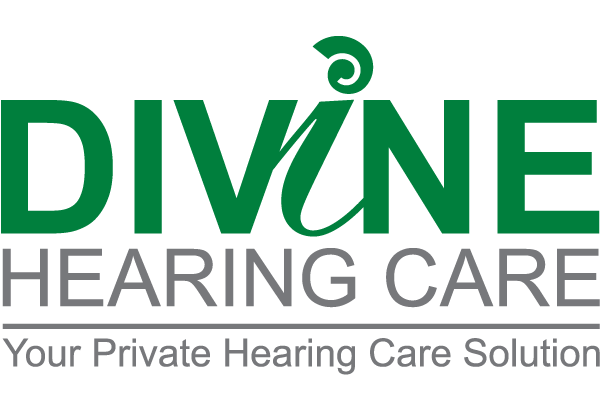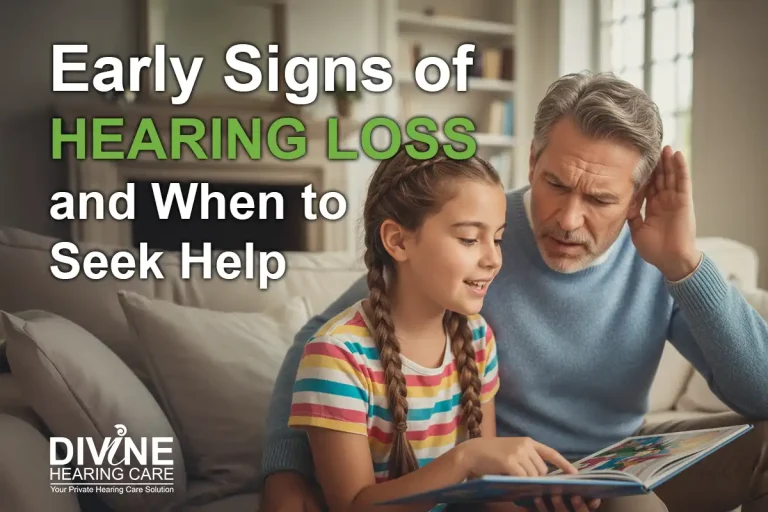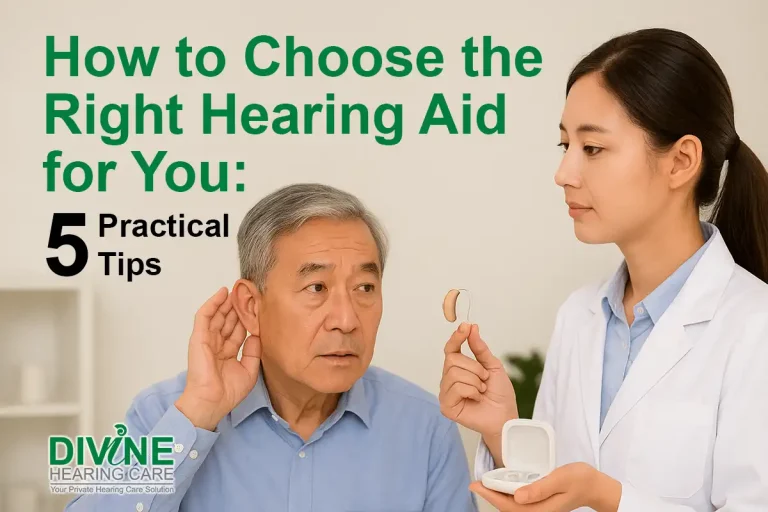How to Prevent Hearing Loss: Everyday Habits That Protect Your Ear
Hearing loss is more common than most people think — and it doesn’t just affect the elderly. Everyday noise exposure, poor ear care habits, and certain lifestyle choices can slowly damage your hearing over time. The good news? Many cases of hearing loss are preventable with the right daily habits.
At Divine Hearing Care, our goal is to help you preserve your natural hearing for as long as possible. Here are some simple yet effective ways to protect your ears and maintain healthy hearing.
1. Keep the Volume Down
Listening to music or watching videos at high volume through headphones or earbuds can damage the delicate hair cells in your inner ear.
Tip: Follow the 60/60 rule — listen at no more than 60% volume for no longer than 60 minutes at a time. Over-ear headphones are also safer than in-ear types because they create less direct pressure on the eardrum.

2. Use Ear Protection in Noisy Environments
If you’re often exposed to loud environments — like concerts, construction sites, or factories — wearing earplugs or earmuffs can make a huge difference.
Even short-term exposure to sounds above 85 decibels (like heavy traffic or power tools) can harm your hearing over time. Carry reusable earplugs and use them whenever needed.
3. Let Your Ears Rest
Just like any part of your body, your ears need time to recover after exposure to loud sounds. After attending a concert or being in a noisy place, try to spend some quiet time to let your ears rest. This helps reduce the risk of permanent hearing fatigue.
4. Keep Your Ears Dry and Clean
Moisture in your ears can allow bacteria and fungi to grow, potentially leading to infections that cause temporary or permanent hearing loss.
After swimming or showering, gently dry your ears with a towel. Avoid inserting cotton swabs or sharp objects — they can push wax deeper or even damage the eardrum. If you have excess earwax, it’s best to consult a professional hearing care specialist.
5. Maintain a Healthy Lifestyle
A balanced diet and regular exercise help improve blood flow to your ears, keeping the delicate sensory cells healthy.
Avoid smoking, as it reduces oxygen supply to the inner ear and accelerates hearing decline. Nutrients like vitamin B12, magnesium, and omega-3 fatty acids have been shown to support ear health.
6. Schedule Regular Hearing Check-Ups
Even if you don’t notice any problems, regular hearing tests are important. Early detection of hearing changes allows for faster treatment and better outcomes.
At Divine Hearing Care, our professional hearing consultants offer comprehensive hearing tests to monitor your ear health and provide personalised protection advice.
7. Be Mindful of Medication Side Effects
Some medications, known as ototoxic drugs, can damage hearing if used improperly. Always ask your doctor or pharmacist whether your medication could affect your ears, and never self-medicate.
Conclusion
Protecting your hearing is a lifelong commitment — and it starts with simple everyday choices. By adopting these habits, you can greatly reduce your risk of hearing loss and enjoy better hearing health for years to come.
If you’d like a professional hearing check or personalised hearing care advice, contact Divine Hearing Care today.
Our specialists are here to help you hear better and live brighter.
Frequently Asked Questions (FAQ)
It’s recommended to get a hearing test every 1 to 2 years, or more frequently if you’re regularly exposed to loud environments.
Yes. Poor blood circulation and lack of certain nutrients can impact ear health. A diet rich in omega-3, folate, and antioxidants helps maintain good hearing.
No. Ear candles are not recommended and can cause burns or blockages. It’s safer to visit a hearing consultant for professional earwax removal.
Common signs include asking people to repeat themselves, turning up the TV volume, or having difficulty hearing in noisy places.
Visit Divine Hearing Care, your trusted hearing care centre in Malaysia, for professional consultation, hearing tests, and expert hearing aid advice.





